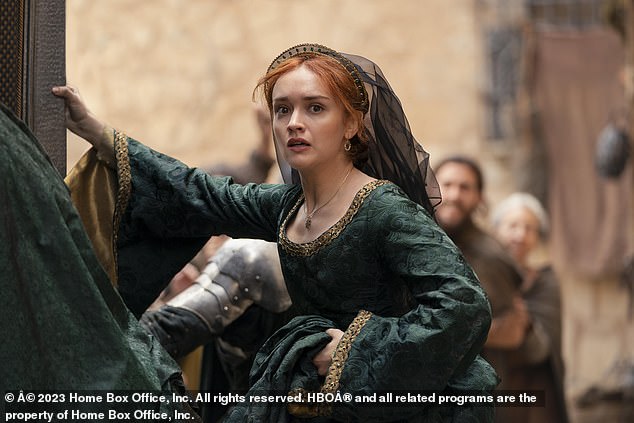Olivia Cooke, star of House of the Dragon, recently shared that she felt the need to get rid of her Northern accent in order to succeed as an actress. Growing up in Oldham with working-class roots, she struggled with feeling less intelligent than her middle-class counterparts in the industry. Despite feeling a sense of pride in her background, she admitted to putting on a different voice when speaking to people with different upbringings, which ultimately made her feel sad. She acknowledged that her working-class background gave her a chip on her shoulder and added that it was a source of embarrassment for her.
Having portrayed characters like Becky Sharp in ITV’s Vanity Fair adaptation, Olivia eventually landed the role of Alicent Hightower in the Game of Thrones spin-off, House of the Dragon. Reflecting on her journey in the industry, Olivia expressed concern about the exclusivity of acting and how it is becoming increasingly difficult for individuals from less well-off backgrounds to break into the industry. She emphasized the importance of drama classes in state schools, not just for aspiring actors but also for building confidence and acceptance in children.
Despite playing a grandmother in the series, Olivia noticed a stark age difference between her character and her on-screen sons, Ewan Mitchell and Tom Glynn-Carney, who are 27 and 29 years old, respectively. This experience led her to reflect on the challenges that older actresses face in securing roles in the industry. She raised a valid point about the lack of representation of aging women on screen, suggesting that she could have been made to look younger and then older for the role, given the advancements in technology that allow for such transformations.
Olivia’s candid admission about the complexities of navigating the acting world as a working-class individual highlights the broader issue of social and economic barriers that exist within the entertainment industry. Her willingness to discuss her struggles with self-perception and the pressures of conforming to certain standards sheds light on the importance of diversity and inclusivity in casting and storytelling. By opening up about her insecurities and challenges, Olivia has sparked a conversation about the need for more representation and support for actors from diverse backgrounds.
As Olivia continues to thrive in her career and challenge societal norms within the industry, her story serves as a reminder of the power of authenticity and resilience in the face of adversity. Her journey from feeling inadequate due to her accent and background to embracing her identity and advocating for change exemplifies the resilience and determination required to succeed in a competitive and often exclusive field. By sharing her story, Olivia not only sheds light on the complexities of the acting world but also inspires others to embrace their authentic selves and push for greater inclusivity in the entertainment industry.


